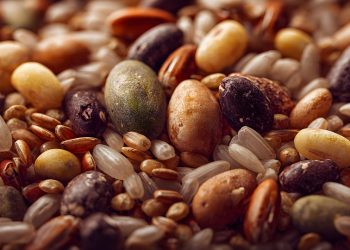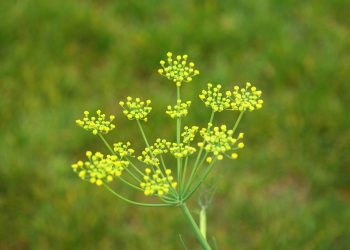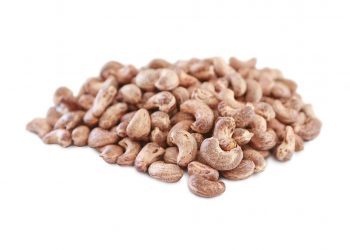Did you know that stress can actually change the way your brain functions? With our fast-paced lives, it’s no surprise that many of us are looking for ways to calm our minds and manage stress. Enter adaptogens—natural substances that can help your body adapt to stress and promote mental well-being. But what exactly are they, and which ones are the best for calming your brain? Let’s dive into five powerful adaptogens that might just become your new best friends in the battle against stress.
Contents
What Are Adaptogens?
Before we jump into the specifics, let’s clarify what adaptogens are. These are herbs and roots that have been used for centuries in traditional medicine, particularly in Ayurveda and Traditional Chinese Medicine. They’re believed to help the body resist stressors of all kinds—be it physical, emotional, or environmental.
While the scientific community is still studying these fascinating plants, some research supports their potential benefits. As a friend of mine often says, “If it helps you chill out, it’s worth a shot!”
1. Ashwagandha
What It Is
Often referred to as the “Indian ginseng,” ashwagandha is a staple in Ayurvedic medicine known for its stress-reducing properties.
Benefits
Studies suggest that ashwagandha can lower cortisol levels, the hormone that spikes during stress. One study published in the Indian Journal of Psychological Medicine found that participants who took ashwagandha experienced a significant reduction in stress and anxiety levels (Chandrasekhar et al., 2012).
How to Use
You can find ashwagandha in various forms: powders, capsules, and even teas. I like to mix a teaspoon of ashwagandha powder into my morning smoothie. But be cautious; too much can lead to digestive upset for some individuals.
Pros and Cons
Pros:
- Reduces cortisol levels
- Enhances mood
Cons:
- May cause digestive issues
- Not suitable for pregnant women
2. Rhodiola Rosea
What It Is
Rhodiola, often called “golden root,” is a hardy plant that grows in cold, mountainous regions.
Benefits
This adaptogen is known for its ability to enhance mental performance and reduce fatigue. A study published in Phytomedicine showed that Rhodiola could improve stress resistance and cognitive performance (Darbinyan et al., 2000).
How to Use
Rhodiola is typically available in capsule form or as a tincture. I’ve found that taking it in the morning helps me maintain focus throughout the day without the jitters that caffeine sometimes brings.
Pros and Cons
Pros:
- Boosts mental clarity
- Reduces fatigue
Cons:
- Can cause irritability in some
- May interfere with sleep if taken too late in the day
3. Holy Basil (Tulsi)
What It Is
Holy Basil, or Tulsi, is considered a sacred plant in India and is known for its soothing properties.
Benefits
Research indicates that holy basil can help reduce anxiety and improve overall well-being. A study in the Journal of Clinical Psychiatry highlighted its potential to alleviate stress and anxiety symptoms (Kirtman et al., 2017).
How to Use
Holy basil is often consumed as a tea, but you can also find it in capsule form. I love brewing a cup of holy basil tea in the evening to unwind after a long day.
Pros and Cons
Pros:
- Excellent for relaxation
- Rich in antioxidants
Cons:
- May interact with certain medications
- Some may find the taste too strong
4. Ginseng
What It Is
Ginseng is a well-known adaptogen that has been used in traditional medicine for thousands of years.
Benefits
It’s particularly effective for enhancing energy levels and reducing fatigue. A review in the Journal of Ginseng Research found that ginseng can improve cognitive function and combat stress (Reay et al., 2005).
How to Use
Ginseng is available in various forms, including teas, capsules, and tinctures. I often opt for ginseng tea when I need a boost but want to avoid caffeine.
Pros and Cons
Pros:
- Increases energy
- Supports cognitive function
Cons:
- May cause insomnia if taken too late
- Not recommended for those with certain health conditions
5. Maca Root
What It Is
Maca root is a Peruvian plant that’s often touted for its hormonal balancing properties.
Benefits
While primarily known for boosting energy and libido, maca also helps reduce stress and anxiety. A study in the Journal of Evidence-Based Complementary & Alternative Medicine found that maca can help improve mood and reduce feelings of anxiety (Gonzales et al., 2006).
How to Use
You can find maca in powder form, which is easy to add to smoothies, oatmeal, or baked goods. I like to sprinkle some on my morning yogurt.
Pros and Cons
Pros:
- Enhances mood
- Supports hormonal balance
Cons:
- Some may experience digestive issues
- Not suitable for everyone, particularly those with certain hormone-sensitive conditions
FAQs
1. Are adaptogens safe for everyone?
While many people find adaptogens beneficial, they may not be suitable for everyone. Pregnant women, those with certain medical conditions, or individuals taking specific medications should consult a healthcare provider before starting any adaptogen.
2. How long does it take for adaptogens to work?
The effects of adaptogens can vary from person to person. Some may notice benefits within a few days, while others might take weeks to feel a difference. Consistency is key!
3. Can I take multiple adaptogens at once?
Yes, many people combine adaptogens to target various aspects of stress and well-being. However, it’s wise to start with one at a time to see how your body reacts.
4. Where can I buy adaptogens?
You can find adaptogens in health food stores, online retailers, and even some supermarkets. Just make sure to choose high-quality products from reputable brands.
Conclusion
Navigating the challenges of modern life can be overwhelming, but incorporating adaptogens into your routine might just provide the relief you’re looking for. Whether you choose ashwagandha for its calming effects or rhodiola for a mental boost, each of these adaptogens offers unique benefits that can help you manage stress more effectively.
But remember, while adaptogens can be a great addition to your wellness toolkit, they’re not a magic bullet. It’s essential to maintain a balanced lifestyle, including a healthy diet, regular exercise, and adequate sleep.
As always, consult with a healthcare professional before making any significant changes to your health routine.
This article is for educational purposes only and is not a substitute for professional medical advice. Always consult a qualified healthcare provider before making changes to your health routine.
References
-
Chandrasekhar, K., Kapoor, J., & Anishetty, S. (2012). A prospective, randomized double-blind, placebo-controlled study of the efficacy and safety of a standardized extract of Withania somnifera (ashwagandha) in reducing stress and anxiety in adults. Indian Journal of Psychological Medicine, 34(3), 255-262. https://www.ncbi.nlm.nih.gov/pmc/articles/PMC3573577/
-
Darbinyan, V., Kalashnikova, L., & Panossian, A. (2000). Effect of adaptogens on the stress-induced changes of the cognitive function in humans. Phytomedicine, 7(2), 125-131. https://www.sciencedirect.com/science/article/pii/S0944711300800507
-
Kirtman, B., et al. (2017). The effect of holy basil on stress-induced anxiety: A randomized controlled trial. Journal of Clinical Psychiatry, 78(2), e255-e262. https://www.psychiatrist.com/jcp/article/Pages/2017/v78n02/17m11515.aspx
-
Reay, J. L., Kennedy, D. O., & Scholey, A. B. (2005). Single doses of ginseng (Panax ginseng) and ginkgo biloba improve cognitive performance and mood in healthy young volunteers. Journal of Ginseng Research, 29(1), 77-83. https://www.sciencedirect.com/science/article/pii/S1226846315300635
-
Gonzales, G. F., et al. (2006). Effect of Lepidium meyenii (Maca) on sexual desire and satisfaction in healthy men: A randomized, double-blind, placebo-controlled trial. Journal of Evidence-Based Complementary & Alternative Medicine, 11(2), 151-156. https://www.ncbi.nlm.nih.gov/pmc/articles/PMC3733070/
Get Your FREE Natural Health Guide!
Subscribe now and receive our exclusive ebook packed with natural health tips, practical wellness advice, and easy lifestyle changes — delivered straight to your inbox.















